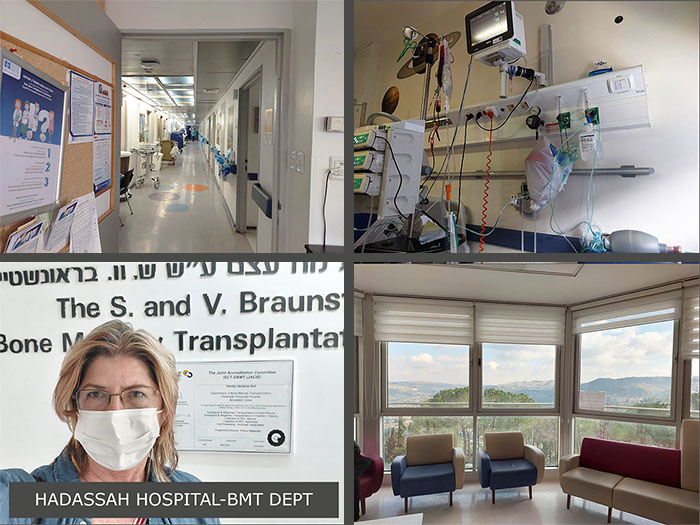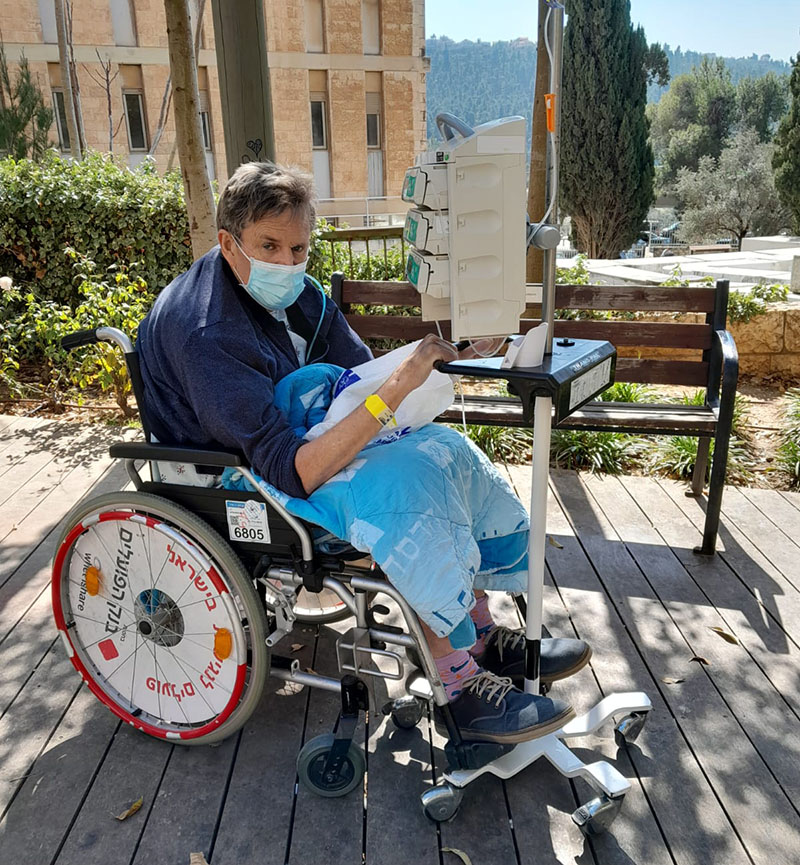
Hadassah Hospital CAR-T Cell Therapy for Multiple Myeloma
In 2017, Hadassah Hospital in Israel embarked on a journey to develop its own CAR-T therapy, an innovative cancer treatment, with the first patients receiving treatment in 2021. As of 2023, this pioneering therapy has been administered to over 80 multiple myeloma patients, producing remarkable results.
This groundbreaking treatment was developed by esteemed professors Polina Stepensky and Cyril Cohen. Stepensky is the esteemed director of the Bone Marrow Transplantation and Immunotherapy Department at Hadassah, while Cohen is the leader of the Cancer Immunology and Immunotherapy Laboratory at Bar Ilan University's Faculty of Life Sciences.
The technology behind this treatment has earned FDA approval for multiple myeloma patients, but the specific therapy itself is part of a clinical study endorsed by both the Helsinki Committee and the Israeli Ministry of Health.
This milestone in CAR-T therapy at Hadassah Hospital was made possible through a collaborative effort with NexImmune, a leading American biotechnology company specializing in immune-oncology therapies. Together, they developed a unique patented CAR-T treatment named NXC-201 CAR-T.
During the therapy process, scientists extract T cells from the patient's immune system. These cells are then genetically modified in a lab to express a specific receptor that can recognize cancer cells. This receptor is a protein within the cell that receives instructions, such as when to divide or self-destruct. Once modified, these T cells are multiplied in large quantities in the lab and then infused back into the patient. The receptor on the T cells attaches to a protein that marks the cancer cells, enabling the T cells to target and eliminate them. This treatment requires only a single infusion.
The CAR-T therapy is more cost-effective compared to other commercially available CAR-T treatments.
SUCCESS RATE
In over 80 patients treated thus far, the therapy has achieved a 90% success rate. The age of the patients ranged from 44 to 84, and age did not influence the success rate.
This therapy is a breakthrough for patients with Multiple Myeloma.
ELIGIBILITY REQUIREMENTS FOR INTERNATIONAL PATIENTS
The patient must have multiple myeloma that is resistant to treatment, with no remission following three different and unsuccessful lines of therapy (Imids, proteasome inhibitors, and anti-CD 38).
TREATMENT PROCESS FOR INTERNATIONAL PATIENTS
- Submit medical records for a complimentary assessment to determine eligibility for the treatment.
- Participate in a remote consultation with Prof. Stepensky.
- Obtain a treatment plan and cost estimate.
- Travel to Hadassah hospital for diagnostics and assessment, which will take approximately one week (outpatient).
- Undergo T-cell collection and a 10-day laboratory process. Hospitalization begins at this stage. The patient will receive light chemotherapy as a preparatory measure for the CAR-T cell infusion.
- Receive the CAR-T cell infusion and stay in the hospital for two weeks to monitor and manage any side effects. The patient will be in isolation during this time, accompanied only by their designated escort.
- Spend an additional two weeks in Israel for outpatient treatment if necessary. International patients who prefer to return to their home country and come back for a PET-CT scan may do so.
- Have a PET-CT scan to assess the effectiveness of the treatment (one month after the T-cell infusion).
- Continue with follow-up checkups in the patient's home country.
- The total estimated stay in Israel for both the patient and their escort is approximately 47 days (1 week + 10 days + 1 month).
Contact us for more details about the logistics, waiting times, and cost of the CAR-T cell procedure at Hadassah hospital.

POSSIBLE SIDE EFFECTS
Side effects could be experienced on the day of the infusion or within a few days following it. Interestingly, these side effects are seen as a positive sign, indicating that the body is reacting to the treatment.
These side effects, including an increase in body temperature, a drop in blood pressure, or reduced urine output, are generally manageable.
Safety data on CAR-T side effects to date:
• No cases of irreversible organ damage or mortality have been reported.
• The majority of patients experienced CRS, predominantly of grades 1-2, with a few instances of grade 3.
• "Tocilizumab" was frequently administered.
• There was a single instance of ICANS (neurological toxicity) at grade 1.
If you are a myeloma patient, get in touch with us to see if this treatment might be right for you.
Testimonial by a CAR-T patient at Hadassah hospital

My Husband and I engaged with Tanya Preminger from IHA to travel from New Zealand to Israel for undertaking Car T treatment. During the preparation stage Tanya was very professional in her approach and extremely responsive to our many emails. During our 8 week stay in Israel Tanya was incredibly supportive on both a practical and social level. Tanya was an effective communicator with ourselves and the Hadassah hospital staff, always accountable and flexible with our needs. We would highly recommend Tanya as a representative for other clients who may be considering various treatments in Israel.
Yvonne and Mike Hogan, New Zealand, 8/5/2023







